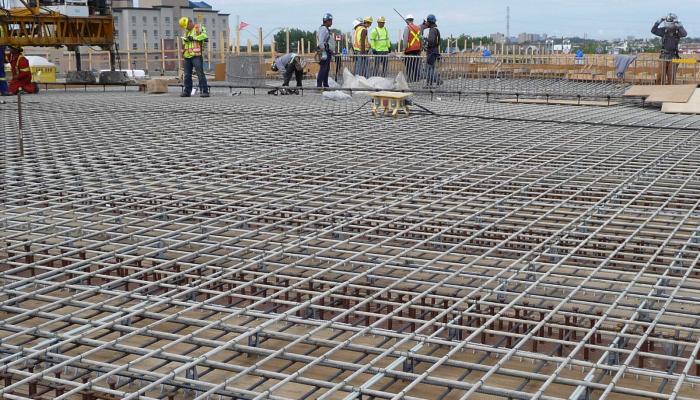Reinforcing bars, commonly known as rebar, play a crucial role in the construction industry. They are used to reinforce concrete structures, providing strength and durability. With various types of rebar available, it’s essential to understand their characteristics and applications to choose the right one for your project. This article explores the different types of rebar, their properties, and their suitable applications.
What is Rebar?
A rebar is a steel bar or mesh of steel wires used as a tension device in reinforced concrete and masonry structures. It helps to hold the concrete in tension, which is essential since concrete is strong in compression but weak in tension. Using rebar enhances the structural integrity of buildings, bridges, and other constructions.
Types of Rebar
1. Carbon Steel Rebar
Carbon steel rebar is the most common type used in construction. It is made from steel and has a ribbed surface to improve the bond with concrete. Carbon steel rebars is available in various grades, with Grade 40 and Grade 60 being the most widely used.
Applications:
- Residential and commercial buildings
- Bridges and highways
- Foundations and slabs
2. Epoxy-Coated Rebar
Epoxy-coated rebars are carbon steel rebar that have been coated with a layer of epoxy to protect it from corrosion. This type of rebar is ideal for use in environments where moisture and chemicals can cause rusting.
Applications:
- Coastal areas
- Chemical plants
- Parking garages
3. Galvanized Rebar
Galvanized rebar is coated with a layer of zinc to provide corrosion resistance. This type of rebars are suitable for projects where exposure to moisture is a concern. The galvanization process helps to extend the lifespan of the rebar.
Applications:
- Marine structures
- Bridges
- Highways
4. Stainless Steel Rebar
Stainless steel rebar is known for its exceptional corrosion resistance. It is more expensive than carbon steel but is ideal for projects that require durability and longevity. Stainless steel rebarsare often used in highly corrosive environments.
Applications:
- Wastewater treatment plants
- Coastal structures
- Chemical processing facilities
5. Fiber-Reinforced Polymer (FRP) Rebar
FRP rebar is a non-metallic alternative to traditional steel rebars. It is made from composite materials, making it lightweight and resistant to corrosion. FRP rebars are ideal for projects where weight reduction are essential.
Applications:
- Bridges
- Parking structures
- Marine applications
6. Welded Wire Reinforcement (WWR)
Welded wire reinforcement consists of a grid of steel wires that are welded together. It is used to reinforce concrete slabs and walls. WWR is available in various sizes and spacing, making it versatile for different applications.
Applications:
- Slabs on grade
- Walls
- Pavements
7. High-Strength Rebar
High-strength rebars are designed to provide greater tensile strength than standard rebars. It is often used in projects that require reduced weight without compromising structural integrity. High-strength rebars are typically made from advanced steel alloys.
Applications:
-
-
High-rise buildings
-
Bridges
-
Heavy-duty pavements
-
Choosing the Right Rebar
When selecting the appropriate type of rebar for your construction project, consider the following factors:
- Environmental Conditions: Assess the exposure to moisture, chemicals, and other corrosive elements.
- Load Requirements: Determine the load-bearing capacity needed for the structure.
- Cost Considerations: Balance the initial cost of the rebar with its long-term durability and maintenance needs.
- Project Specifications: Follow any specific guidelines or requirements set by engineers or architects.
Conclusion
Understanding the different types of rebar is essential for making informed decisions in construction projects. Each type of rebar has its unique properties and applications, making it suitable for various environments and structural requirements. By considering factors such as environmental conditions, load requirements, and cost, you can select the right rebar to ensure the strength and longevity of your construction.
Incorporating the appropriate type of rebar not only enhances the structural integrity of your project but also contributes to safety and durability. Whether you are working on residential buildings, bridges, or industrial structures, choosing the right rebar is a critical step in the construction process.

